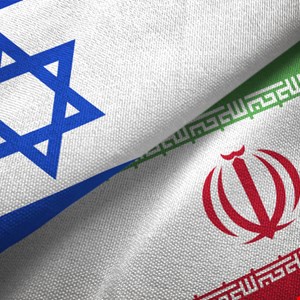- Are tri-foldable phones the next big thing? I tried one from an upstart brand
- How Block is accelerating engineering velocity through developer experience
- Enhancing Security Monitoring with Tripwire's Change Audit: New Rules for Firewalls, WFP, and Microsoft Store Applications
- ‘그 시절 우리가 따랐던 원칙’을 대체하는 새 IT 리더십 규칙 8가지
- Hidden costs of compromised privacy: Protecting brands and customers
Iran Nuclear Facility Suffers Cyber-Attack

An Iranian nuclear facility south of Tehran has been hit by cyber-attackers, according to the country’s chief nuclear official.
Ali Akbar Salehi said that the attack on the Natanz complex took place the day after Iran unveiled new equipment to enrich uranium. In a ceremony broadcast live on television on April 10, the country’s president, Hassan Rouhani, inaugurated new centrifuges at the Natanz site.
According to the Federation of American Scientists, centrifuges can raise serious nuclear weapons proliferation concerns “because exactly the same machines that are used to enrich uranium for a nuclear reactor can enrich uranium for a nuclear bomb.”
Salehi described the strike as a “terrorist attack” carried out to “sabotage” Iran’s nuclear program. He did not state who was responsible for the incident, but intelligence sources cited in Israeli public media are attributing the attack to Israel.
Israeli public broadcaster Kan and the Haaretz newspaper painted the Natanz incident as a power cut brought about by Israeli cyber-operatives.
The flow of warnings issued by Israel regarding the danger of Iran’s nuclear program has recently increased; however, Israel is yet to publicly comment on the Natanz attack.
On Iranian state television, Salehi was quoted as saying: “Condemning this despicable move, the Islamic Republic of Iran emphasizes the need for the international community and the International Atomic Energy Agency [IAEA] to deal with this nuclear terrorism.
“Iran reserves the right to take action against the perpetrators.”
Under the terms of a 2015 nuclear deal, Iran is permitted to produce and store only limited quantities of enriched uranium. The deal also restricts the country’s use of the heavy metal to the production of fuel for commercial power plants.
Behrouz Kamalvandi, a spokesperson for the Atomic Energy Organization of Iran (AEOI), said on Sunday that the Natanz facility’s power network have been impacted by an “incident” on the morning of April 11.
He assured Iranian news agency Fars that “no casualties or leaks” had occurred at the complex.
IAEA has not commented on the reported incident at Natanz.

